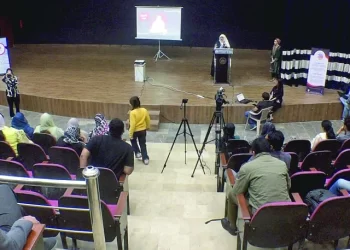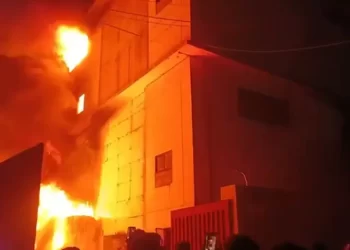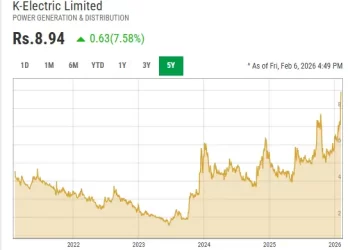Chris Knayzeh was in a town overlooking Lebanon’s capital when he heard the rumbling aftershock of the 2020 Beirut port blast. Hundreds of tonnes of haphazardly stored ammonium nitrates had exploded, killing more than 200 people and injuring thousands.
Already struggling with the country’s economic collapse, the sight of the gigantic mushroom cloud unleashed by the blast was the last straw. Like many other Lebanese, he quit his job and booked a one-way ticket out of Lebanon.
Knayzeh, now a lecturer at a university in France, was visiting Lebanon when news broke on Tuesday of a deadly attack in which thousands of handheld pagers were blowing up in homes, shops, markets and streets across the country. Israel, local news reports said, was targeting the devices of the Hezbollah group.
‘The country’s state is unreal’
Stuck in Beirut traffic, Knayzeh started panicking that drivers around him could potentially be carrying devices that would explode.
Within minutes, hospitals were flooded with bloodied patients, bringing back painful reminders of the port blast four years ago that left enduring mental and psychological scars for those who lived through it.
“The country’s state is unreal,” Knayzeh told The Associated Press.
The port blast was one of the biggest non-nuclear explosions ever recorded, and it came on top of a historic economic meltdown, financial collapse and a feeling of helplessness after nationwide protests against corruption that failed to achieve their goals. It compounded years of crises that have upended the lives of people in this small country.
Four years after the port catastrophe, an investigation has run aground. The ravaged Mediterranean port remains untouched, its towering silos standing broken and shredded as a symbol of a country in ruins. Political divisions and paralysis have left the country without a president or functioning government for more than two years. Poverty is on the rise.
‘All this pain, when will it end?’
On top of that and in parallel with the war in Gaza, Lebanon has been on the brink of all-out war with Israel for the past year, with Israel and Hezbollah trading fire across the border and Israeli warplanes breaking the sound barrier over Beirut almost daily, terrifying people in their homes and offices.
A full-blown war with Israel could be devastating for Lebanon. The country’s crisis-battered health care system had been preparing for the possibility of conflict with Israel even before hospitals became inundated with the wounded from the latest explosions. Most of the injuries received were in the face, eyes and limbs – many of them in critical condition and requiring extended hospital stays.
Still, Knayzeh, 27, can’t stay away. He returns regularly to see his girlfriend and family. He flinches whenever he hears construction work and other sudden loud sounds. When in France, surrounded by normalcy, he agonises over family at home while following the ongoing clashes from afar.
“It’s the attachment to our country I guess, or at the very least attachment to our loved ones who couldn’t leave with us,” he said.
Lebanese expats cut short holidays
This summer, tens of thousands of Lebanese expatriates came to visit family and friends despite the tensions. Their remittances and money they spend while there help keep the country afloat and in some cases are the main source of income for families. Many, however, cut their vacations short in chaotic airport scenes, fearing major escalation after the assassinations of Hezbollah and Hamas commanders in Beirut and Tehran last month, blamed on Israel.
Even in a country that has vaulted from one crisis to another for decades, the level of confusion, insecurity and anger is reaching new heights. Many thought the port blast was the most surreal and frightening thing they would ever experience – until thousands of pagers exploded in people’s hands and pockets across the country this week.
’’I saw horrific things that day,” said Mohammad al-Mousawi, who was running an errand in Beirut’s southern suburb, where Hezbollah has a strong presence, when the pagers began blowing up.









